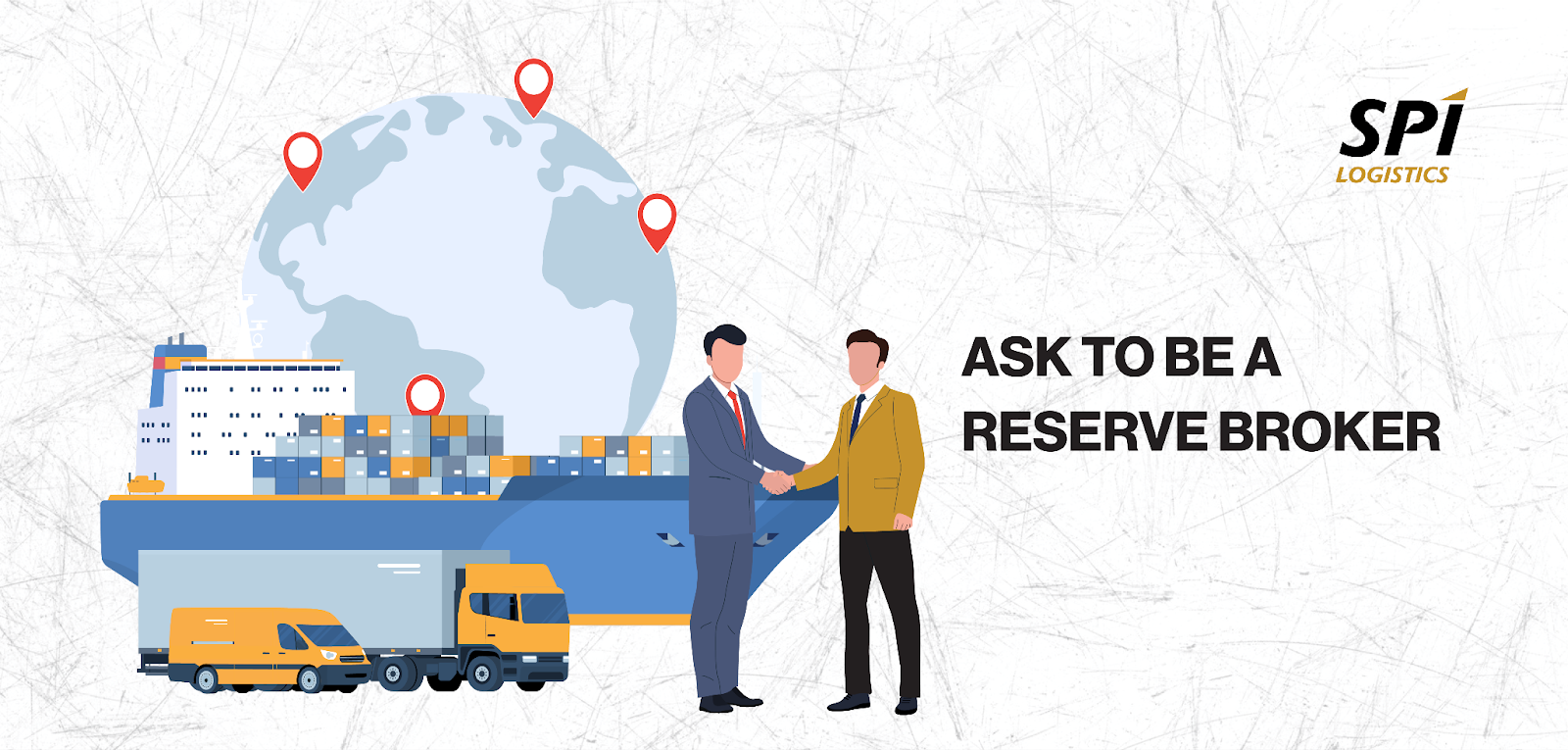Freight brokers, especially those who are new to the industry, face the challenge of finding reliable shippers to help expand their business at least once in their careers. Often, the shippers in your area already have a brokerage they work with, or you don’t know the best ways to approach them to secure the deal. It can seem like you’re never going to pick up new clients but don’t worry, we have the steps that can help.
Building strategic relationships, using the right marketing approaches, and utilizing the correct platforms is pivotal in finding shippers as a freight broker. Below are the top ten approaches you can use to find freight shippers, and there’s no doubt you’ll be increasing your customer base in no time.
Make the most of the shippers you already have
If you’re not a freight brokerage that’s just starting out, you’ve probably already got a list of shippers you work with. One of the best steps to finding new clients is to develop a strong working relationship with the ones you already have.
By keeping your current client base happy, there’s a bigger chance that they’ll refer you to other freight shippers who are looking for a broker. You might also feel more comfortable asking your clients if they have other subsidiaries or divisions within their company that are in need of a quality freight brokerage.
There are some excellent strategies you can use to maximize the value of your current shipping connections:
- Tailor your services to each client individually. Before you sign them on, get to know their specific needs and what they’re looking for from a freight broker. You can then customize your offerings to meet their requirements.
- Maintain open and transparent communication with all of your shipping clients. You can do this by providing your shippers with regular updates on essential information, asking for regular feedback, and answering any questions they may have.
- The best thing to do to keep your shippers happy is to provide them with exceptional service throughout the supply chain. Always strive to go above and beyond for your clients and ensure you meet their primary needs.
Introduce a referral program

As we mentioned above, when you develop a strong relationship with your current clients, you have a better chance of them referring you to other companies or branches within their own business. Another great way you can increase these chances is by implementing a referral program, which rewards your shipper lists for providing you with new customers. How they refer you is up to them, but the new shipper must state who referred them so your current client can receive the perks.
Setting up a referral program isn’t difficult when you know what to do, and you can reap some pretty generous benefits. It’s best to design a clear incentive system with rewards that shippers will want, such as discounts, credit, and exclusive services. You also want to ensure the terms and conditions are simple to understand and completely transparent.
Reward shippers for their loyalty
Everyone loves rewards and free perks, so a referral program is one of the best ways to gain new shippers. Another method that focuses on incentives is a loyalty program for your current client base. Not only does this keep your shipping list happy, but it also attracts the attention of potential customers. It’s a way to make your freight brokerage stand out among the competition, as they might not be rewarding their shippers for their loyalty. Therefore, if a new client wants to sign with a broker, they are more likely to choose you.
There are a few different types of loyalty programs you can set up as a freight broker:
- Tiered loyalty program: The longer a shipper stays with you, or the more business they offer you, the more tiers they move up. In each tier, they’re offered new rewards and benefits, incentivizing them to stay with you longer.
- Exclusive benefits: Offer clients that have been with you after a certain amount of time, or met a certain quota of sales, exclusive rewards such as a percentage discount, priority service, or early access to new services.
- Points system: Work on a point system where customers can earn points each time they do business with you or hit a milestone. They can then exchange these points in a ‘rewards shop’ for things such as discounts and upgrades.
Ask to be a reserve broker

The most common issue freight brokers encounter when trying to expand their shipping list is that the shipper already works with a broker. This is often the case with larger companies, especially if they’re actively shipping freight. But just because they turn you down initially doesn’t mean you should say thank you and leave. You can always offer to become a reserve broker.
A reserve broker is someone who steps in when a shipper’s current broker is unavailable or if they’ve started to experience unexpected surges in demand or capacity shortages. By becoming a reserve broker, you have a chance to show the companies that are already taken what you are made of. It might not mean you’ll have the bulk of the business, but it at least increases your shipping list to an extent and can get you some high-paying jobs every now and again.
Try cold and warm calling
Two more methods you can try to sign on more shippers as an independent freight broker is warm and cold calling. Both include calling up potential clients, but there are some differences. Cold calling involves one of the sales reps in your brokerage calling up a prospect who hasn’t shown any interest in your services and trying to see if you can interest them. Warm calling involves calling up shippers who have expressed interest in your services, and the aim is to try and seal the deal.
For higher chances of success, both cold and warm calling have a similar process you should follow:
- Introduce yourself with a clear purpose of the call, moving into a brief statement about your company’s expertise and value proposition.
- Research the shipper you’re contacting beforehand so you can make the conversation more personal and relevant.
- Clearly state what makes you the best freight broker and how your services address their current pain points.
- End the call with a call to action. This can be anything from inviting them for a follow-up call, providing them with a free audit or demo, or asking them to provide contact information so you can send a proposal.
Offer perks like free audits

We’ve already mentioned establishing a loyalty or rewards program for your current clients, but you should also consider offering free perks for new clients who sign on with you or are considering working with you. When they know they’ve got a special perk to make the most of their time with a broker, they are more enticed to choose them because of the added value.
One of the main free perks you can offer as a freight broker is a free audit or consultation. This helps give the shipper an idea of what your company is about and what it will be like when you work with each other. It also helps you stand out among the competition, as not every broker in the industry will offer this sort of perk.
Send direct mail
While you can approach prospective shippers via the cold or warm calling method, you can also do something similar called direct mail. This doesn’t involve verbally speaking to potential customers; instead, you send them an email with all the information they need to know about your brokerage and how it can address their pain points. Direct mail provides an opportunity to showcase your brand identity and what makes you unique without being cut off in a call.
The best way to implement a direct mail approach is by putting together targeted mailing lists. These include shippers that have been refined based on industry, shipping needs, and location. From there, you must ensure that you’re presenting all the important information about bringing you on as a freight broker with eye-catching design elements. Of course, you must include a call to action that encourages the shippers to get in touch or find out more.
Establish a strong social media presence
We are living in the age of social media, which is why you should not neglect your online presence as a freight broker. Not only does it keep your current customer base informed on any changes within your company and services, but it also presents an excellent opportunity to highlight your selling points and attract new shippers to sign on with you.
Social media plays a significant role in shaping the brand identity of a freight brokerage, and you can easily showcase your expertise and reliability across several platforms. It shows shippers how much you engage with your customers and the nature of your relationships, so you need to ensure you are regularly communicating with those who interact with your profiles.
Whether you use Instagram, Facebook, X, freight brokerage websites, or all of them, they all have the potential to serve as a lead generation channel. The best approach for each of your platforms is to use a mixture of content marketing and storytelling to attract and convert prospects. You can also post regular updates and market any selling points, such as your loyalty program, referral scheme, or free audits. It acts as a more passive form of attracting shippers, but you never know whose attention you may pique.
Reach out to smaller businesses

Another mistake that many brokers make is only trying to pick up business from the largest shipping companies in the area. While you are more likely to receive a bigger payday for fewer jobs by working with one company, it is much harder to gain the attention of one of these shippers, and you’ll need revenue coming in from the moment you set up your brokerage. That’s why you should reach out to smaller businesses too.
A smaller business may not have as much work for you as a massive corporation, but they need reliable shipping solutions too. You might start as the freight broker for a small business during their implementation business, but if you develop a strong relationship, you’ll also be with them as they grow and have more work to give you.
Therefore, you should target a few of your marketing approaches for small shipping businesses as well. Here are a few ways you can do it:
- Provide streamlined and simplified logistics solutions specific to small businesses.
- Highlight your cost-effective solutions and how you can tailor your services to their budget.
- Personalize your customer service and provide direct communication channels.
- Offer educational materials and guidance that can help the business grow.
- Use a collaborative approach, which includes the freight shippers in the decision-making processes.
Attend networking events
No matter what industry is in, you cannot gloss over the importance of networking. Making connections with other freight brokers, freight forwarders, and new carriers and shippers is an excellent way to build up your customer base. There are often several networking events in the freight industry throughout North America and other countries that you can attend, and you’ll come out with connections that can boost your presence among potential shippers.
There are several other ways that networking events can help your freight brokerage. Not only do they provide access to opportunities such as new partnerships and referrals, but they can help expand your industry knowledge and build a solid reputation among big names.
For the ultimate success at networking events, you can follow these tips:
- Prepare for each of the events by researching who might be there, the agenda, and what your specific goals are for attending.
- Put together an elaborate elevator pitch that you can use on any of the attendees that you want to impress.
- Make the most of your social media platforms and attract attention to your profiles by using event hashtags and interacting in forums.
- Offer your own assistance to shippers and other freight brokers to provide value that will benefit fellow attendees.
Conclusion
The freight industry is a large and competitive one. As a broker, you might have been struggling to pick up new clients to grow your company, but luckily, there are so many different methods you can use, including those above.
For a better chance of success, you can also partner with SPI Logistics, which provides some of the best services in the industry, including advanced operational support, seamless payment systems, and robust tracking skills.
With these tools, you can attract the interest of more shippers, eventually increasing your customer base. All you have to do is get in touch with one of our experts today, and we’ll put you on the map.
FAQs
What’s the difference between freight brokers and freight shippers?
There’s a clear distinction between the roles of freight brokers and freight shippers. Shippers are the companies who own the goods and require transportation using carriers. This can include manufacturers, retailers, or distributors. They prepare all of the cargo that needs to be shipped and handle various other tasks, such as negotiating rates with brokers and handling compliance. Freight brokers act as middlemen between the shippers and the carriers, ensuring the entire process runs smoothly.
Do freight brokers specialize in specific industries or types of shippers?
Yes, freight brokers often specialize in specific industries and work with one or a few types of shippers to help make their services more personal and accessible. Some of the most common industries brokers might work with include automotive, healthcare, and retail. It allows for more efficient logistics management through industry expertise.
How important is building relationships with shippers as a freight broker?
Building a strong relationship with shippers is incredibly important, regardless of whether they’re a client or not and can help make you one of the top freight brokers. If they are on your shipper list, a good relationship will encourage them to stay loyal and potentially refer you to other shippers. If they are not one of your clients, maintaining a good relationship means they might work with you in the future.
Are there online platforms freight brokers can use to connect with potential shippers?
Yes, there are various online platforms that can help freight brokers connect with potential shippers. Each of them has its own specific services and goals, but they’re all beneficial in helping you grow your client list and business. Some of the most popular platforms you can use include load boards like DAT and Truckstop.com, marketplaces like Convoy and Uber Freight, or even software like that offered by SPI Logistics or other 3PL systems.




